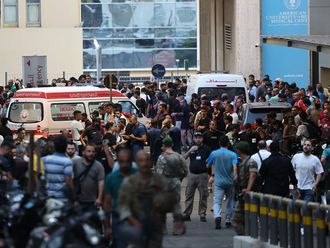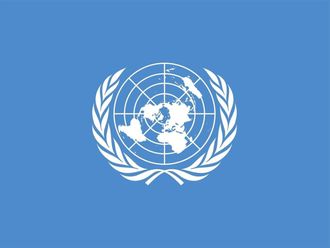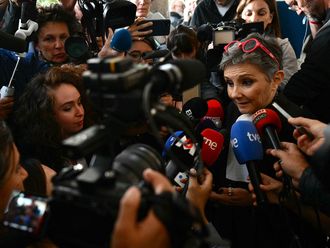Chisinau, Moldova: Moldova's ruling pro-Europe alliance was ahead of the opposition Communists, election results showed on Monday, but it's not clear whether that will end the country's year-long political deadlock.
With more than 95 per cent of the votes counted from Sunday's election, the three liberal parties of Prime Minister Vlad Filat's Alliance for European Integration led with 50 per cent of the vote, against the Communists' 41 per cent. Final results were expected later yesterday.
The current tally would give Filat's alliance 57 seats, and the Communists 44. But the alliance needs 61 lawmakers in the 101-seat legislature to elect a pro-European president. Votes are still to be counted from the 600,000 Moldovans who work abroad and who tend to favour the pro-Europe alliance.
Those votes could provide the alliance with the extra seats it needs to elect a president, but analysts say the result is too close to call. Turnout was about 60 per cent of the country's 2.6 million eligible voters.
Ruling alliance
Moldova lies in Eastern Europe between Ukraine, another former Soviet republic, and Romania, which is a member of the European Union.
Moldovans have an average monthly salary of 235 euros (Dh1,142) — one of the lowest in Europe.
The Communists favour closer trade, customs and political ties with Russia, Belarus and Kazakhstan, which would keep it firmly in the orbit of the former Soviet Union. The ruling alliance is pursuing market and democratic reforms and would like Moldova to become a member of the European Union, something it acknowledges will take years.
It is supported in those efforts by Romania. Moldova was part of Romania until 1940, when it was annexed to the Soviet Union. Moldova does not want to join Nato.
Riots broke out in Chisinau, Moldova's capital, after an April 2009 election when opponents claimed the Communists had rigged the vote to hold onto power. A new election was held in July 2009, and the Communist Party lost its majority.












